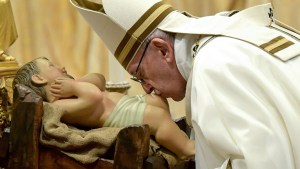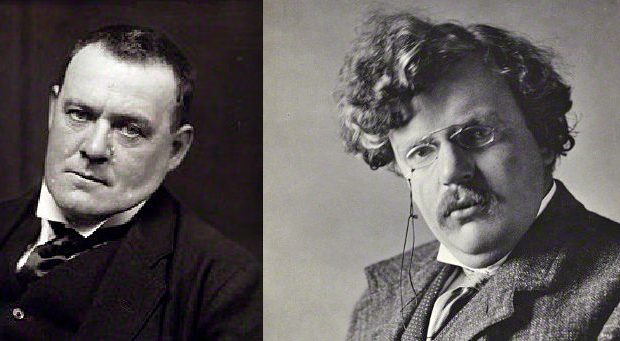What would an ideal celebration of Christmas look like? The worldly might wish for mounds of gifts under a tree, followed by a sumptuous meal. The weary might wish for the “all is calm” celebrated in the hymn, “Silent Night.” The lonely might wish for being together with dear ones. The sentimental might wish for reliving cherished childhood memories. And the devout might wish for a majestic and dignified Midnight Mass, with proper Christmas hymns properly sung, along with a finely crafted, inspired and inspiring (and memorable!) sermon.
What do I wish for Christmas? Like many people in the English-speaking world, I am very much influenced by English Christmas customs, as depicted, say, by Charles Dickens, as well as countless Christmas cards. But beyond those cultural wrappings, there is a hard-won faith supporting the people who lived those charming customs—and that is what I want for Christmas. I want the kind of faith, hope, and love that has had human darkness pushed back by a prophesied-yet-unexpected Light, a light that will not fade and cannot fail. Let me give you two examples.
I’ve invited two of the loudest, most boisterous, most festive and most realistic Englishmen I know of into my celebration of Christmas this year: Hilaire Belloc and G.K. Chesterton.
Belloc’s essay, “A Remaining Christmas,” is captivating. It tells of a household’s cherished Christmas (and New Year’s) customs that are at once charming, sensible, festive, solemn, so human and so divine. If I had to board an airplane or a time machine to be there, I would gladly make the trip. Yet as beautiful as his account is, it is not merely sentimental. There’s light, laugher and joy, of course, but also blood, tears, and darkness. He tells of the home of a family so very human, so very much in need of grace, and so sure that the needed grace has been given:
This house where such good things are done year by year has suffered all the things thatevery age has suffered. It has known the sudden separation of wife and husband, the suddenfall of young men under arms who will never more come home, the scattering of the livingand their precarious return, the increase and the loss of fortune, all those terrors and all thoselessenings and haltings and failures of hope which make up the life of man. But its Christmasbinds it to its own past and promises its future; making the house an undying thing of whichthose subject to mortality within it are members, sharing in its continuous survival.It is not wonderful that of such a house verse should be written. Many verses have been sowritten commemorating and praising this house. The last verse written of it I may quote byway of ending:‘Stand thou for ever among human Houses,House of the Resurrection, House of Birth;House of the rooted hearts and long carouses,Stand, and be famous over all the Earth.
Because of the family’s looking first to the Christmas Crib, the place where our Hope became one of us, they could celebrate, suffer, endure, and face another day, another year, another death, another birth.

Read more:
Pope Francis explains the symbolism of each figure in the Nativity scene
My next Christmas companion is G.K. Chesterton. Chesterton had an abiding sense of paradox—the little holding the great, the weak overcoming the strong. The last lines of his “Christmas Poem” are worth committing to memory. Perhaps they can be used as part of a prayer before a Christmas meal, or as a toast of thanksgiving at the end of such a meal:
To an open house in the eveningHome shall men come,To an older place than EdenAnd a taller town than Rome.To the end of the way of the wandering star,To the things that cannot be and that are,To the place where God was homelessAnd all men are at home.
Belloc and Chesterton reveled at Christmas, with a loud and grateful solemnity, because at the sight of the Christmas Crib they could see that God had come to all of human life to stay. “Emmanuel! God-with-us!” I can hear them shout. All that is truly human—body and soul—can be saved and sanctified and even divinized! How could we not celebrate? How could we remain indifferent? The Christ Child in the manager, I believe they would say, proves that God is faithful, and now calls us to be faithful too.
God’s prophets foretold the great fidelity; the evangelists recorded his victory and promised his glorious return. We’re invited to be caught up in that great story, if we but look down in silent wonder at a Child, and listen for angels.
When I write next, I will offer some reflections on the coming new year and new decade. Until then, let’s keep each other in prayer.

Read more:
G. K. Chesterton’s best Christmas poem

